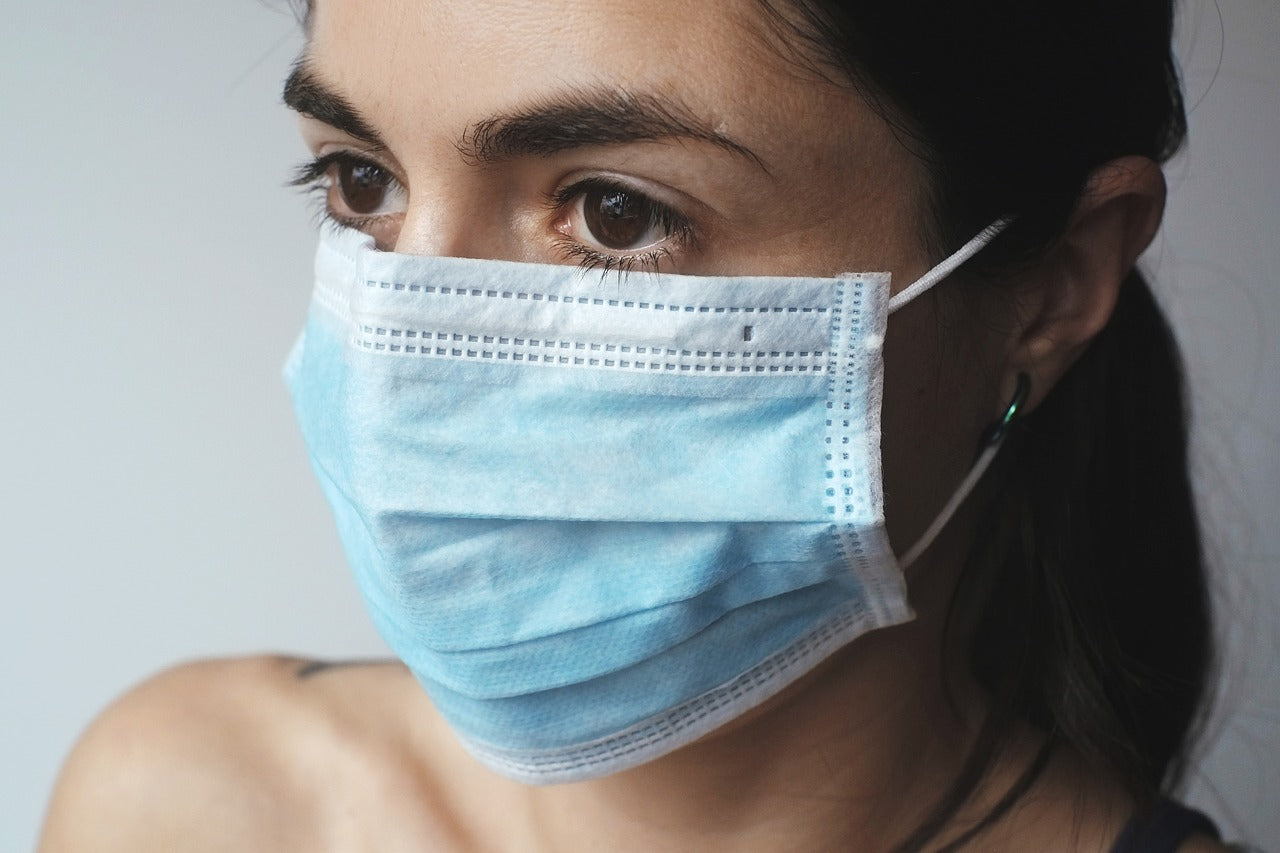Free U.S. Shipping On Orders Over $150

Sensitive Skin? How to Avoid Skin Problems from a Face Mask
Posted on
Masking is good and all, and something you should still be doing when in public, but it can come with some downsides for your skin.
Wearing a mask for long periods can cause acne, rashes, itchy skin, redness and other issues. These issues can be especially bad if you have sensitive skin.
One, not very good, solution is to stop masking. But that exposes you to additional health risks. So we’ve written this quick guide on how to avoid skin problems while still enjoying the protection of a face mask.
What Skin Problems Do Face Masks Cause?
The constant contact between the mask and the skin is what causes problems. Some people experience dry and irritated skin at the points of contact. Other people get itchy usually accompanied by redness or rashes that trace the outline of the mask.
In some people, a face mask can lead to an acne breakout, or what’s informally known as maskne (mask acne). This usually happens when bacteria, dirt and sweat from the mask clogs skin pores, causing a breakout.
A face mask can also cause pain or soreness around your ears where the mask is secured. This happens if your mask is too tight or when you wear it for an extended period.
Another issue with masks is the increased humidity they cause around the nose and mouth. If your skin is sensitive to high levels of moisture in the air, you could experience a skin reaction.
7 Tips to Avoid Maskne and Other Skin Problems When Wearing a Face Mask
Ditching your mask is not the solution. You still need it to protect yourself from Covis and many other airborne infections. Instead, choose the right kind of mask and focus on good skincare.
1. Wear a Comfortable Anti-acne Mask
The most important tip is to find the right mask for your skin. You may need to experiment with several masks until you find one that’s comfortable and gentle on your skin.
We recommend avoiding cheap disposable and reusable face masks and buying premium masks instead. These tend to be made with better materials that are breathable, safe for the skin and offer better protection.
The Hercleon Aplu anti-acne mask is one of the best ones in the market. The mask is made with HercFiber material that slows down the growth of acne-causing bacteria. This reduces the risk of a breakout on your skin.
There’s also the Aplu flight mask that’s designed specifically for long flights. In addition to acne protection, it uses head straps (instead of ear straps) to prevent discomfort around your ears when you wear the mask for hours.
Whichever mask you decide to pick, check for the following features.
- Snug but not tight. Masks that fit too tightly cause the most problems.
- Breathable to reduce humidity buildup on your skin.
- Soft material that doesn't irritate the skin.
2. Moisturize Your Skin and Lips
When a mask comes into contact with your skin, it absorbs moisture, leaving your skin dry and irritated. To fight that, keep your skin and lips well moisturized.
Apply lip balm and moisturizer before you put on the mask, a couple more times during the day and after you take off the mask.
3. Be Careful With Makeup
When you are planning to wear a face mask for several hours, it’s a good idea to reduce the amount of makeup you apply. The make up can clog your skin pores under the mask, causing a breakout.
Use less makeup and only apply non-comedogenic products.
4. Take Mask Breaks
If it is safe to do so, remove your mask for 10-20 minutes every four hours. This will give your skin a break and allow any built-up moisture to dissipate. It also helps prevent ear pain and soreness.
5. Use a Gentle Cleanser
At least twice a day, use a gentle cleanser on your face. This removes build-up of dead skin cells, oils, dirt and bacteria on your face and prevents your skin from clogging when you put on a mask.
6. Wash Cloth Mask Often
If you are using a reusable cloth mask, keeping it clean is essential in protecting your skin. Dirt, oils and bacteria on the mask can transfer to your skin and cause breakouts.
Wash the mask daily with your regular laundry or hand wash it with soap and water.
7. Avoid Touching the Mask With Your Hands
Finally, avoid touching your mask with your hands as this could transfer acne-causing bacteria onto your skin. To be extra-safe, sanitize your hands often so that in case you touch your mask or face, you don't transfer bacteria.
Quick links
Contact
6063 Hudson Road #160
Woodbury, MN 55125
Yo@hercLeon.com
Leave a comment: